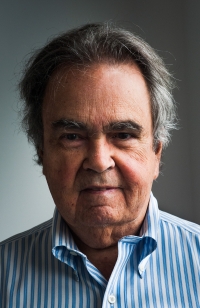I don´t like political excesses.

Stáhnout obrázek
Carlos de la Cruz was born in 1941 in Havana, Cuba. His family is part of the Cuban elite, owing to several sugarcane plantations and involvement in a wide range of business activities. Since 1950, Carlos studied in New York, returning to Cuba only for holidays and Christmas. After the victory of the Cuban revolution, he had to remain in the United States, studying economy at the University of Pennsylvania. After graduating, he worked in the banking sector as a business analyst. Later, he moved to Spain with his family and began working with investment funds. Upon returning to the United States, he got a J.D. in law from the University of Miami and returned to the banking sector as a director at several important banking houses. He also bought several large companies, including Coca-Cola, Puerto Rico. During the Clinton administration, he was a part of a US delegation led by Senator Graham that was set up to negotiate the issue of Cuban citizens who ended up at the Guantanamo military base after trying to sail to the United States. He has also been involved in providing education to the Cuban émigrés. In 2001, he got involved in the case of Elián Gonzáles, a Cuban who was found at sea by a US ship as he tried to reach the United States. With his wife, Rosa Rionda de la Cruz, he established a private art gallery in Miami that is open to the general public.
